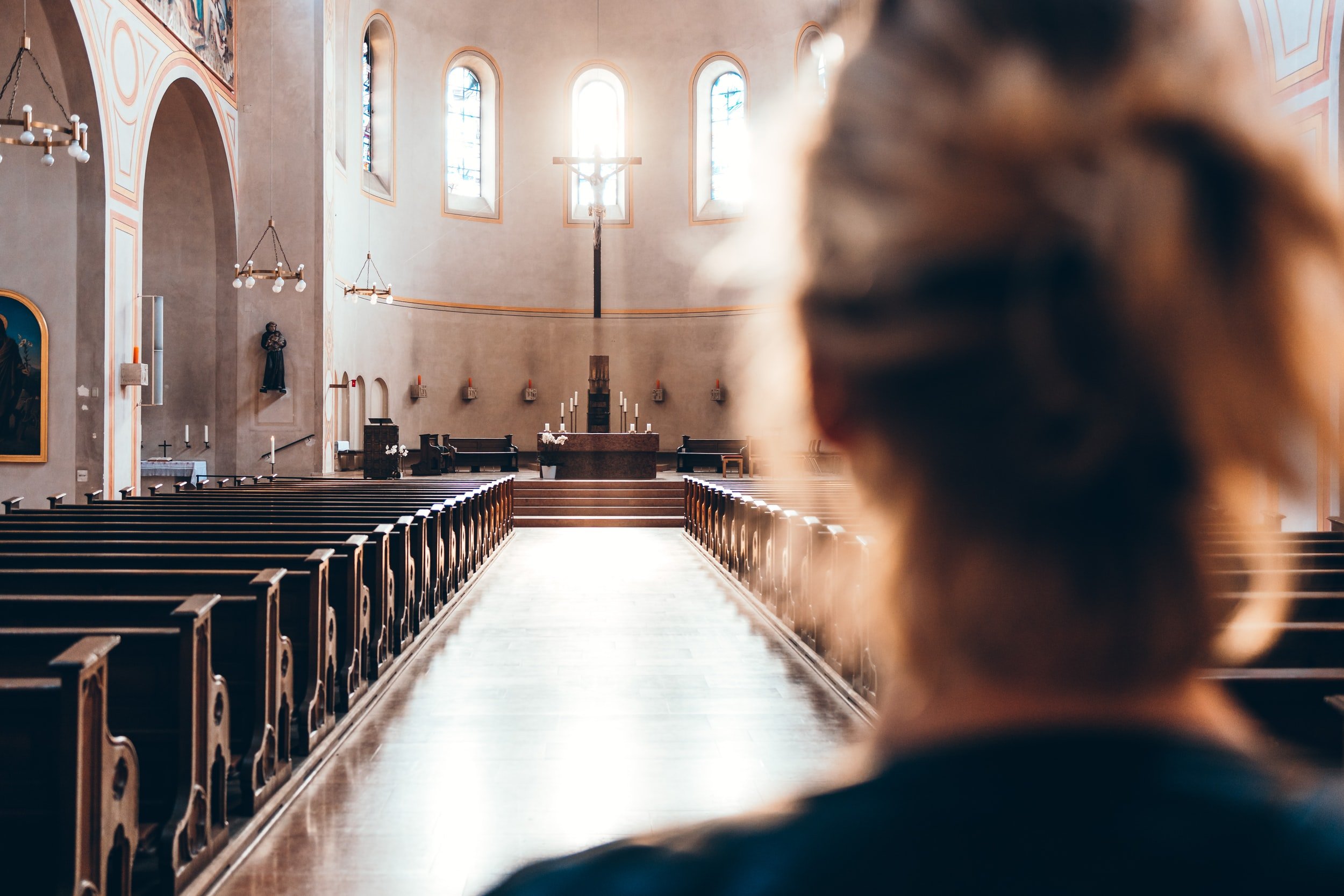Why I Don’t Go to Church (But Want to)
It’s no secret that one of the biggest problems facing the Church in the U.S. right now is that many are leaving it. Those who are still committed to it have lamented that fact ad nauseum, conducting multiple studies and writing countless articles about why it’s happening and how to stop it. In fact, a quick Google search of “young people leaving the church” yields articles from Christianity Today, Focus on the Family, Barna, Biola Magazine, Lifeway Research, and so many more. One report commissioned by the Pinetops Foundation even found that 42 million young people will leave the Church by 2050 if nothing is done.
As someone who finds herself as part of that statistic (that is, someone who’s left the Church; the “young” part is debatable), I was hopefully curious about what the Pinetops report said could be done to reverse the trend. They offer five steps that pastors, ministry leaders, and church members can take:
Start more churches;
Change the way we disciple young people;
Reach new audiences (specifically by “leveraging new media to engage online with the Gospel”);
Care for the poor;
Build long-term witness (meaning to “thoughtfully articulate the Gospel in our modern culture”).
And that’s when I involuntarily rolled my eyes and walked away from my computer.
More than what’s on their list—arguably all but the first are needed (how about rehabilitating and revitalizing the thousands of churches we already have?)—what caused me to drift from the Church and has indeed kept me from returning is what’s not on their list.
If the list had included things like, “Emulate Jesus especially when it’s hard or it hurts,” “Help creation flourish,” “Work toward the thriving of all human beings,” “Stop linking the way of Christ with a political platform,” “Dismantle racism in all its forms,” and so on, I would have been encouraged. But as it stands, what I see from visiting many churches over the years and from pastors, church members, and ministry leaders alike seems to be about looking inward and defending what’s inside the church, rather than moving outward to become a beacon of hope to everything and everyone outside their walls.
“But Melanie,” you might protest, “they have caring for the poor on their list!” That is true and seemed to be a glimmer of hope. But when I clicked on that list item to learn more about how they proposed the Church at large should implement this, I was once again frustrated. They seemed confused about what they actually wanted to say. On the one hand, they quoted Dr. Martin Luther King, Jr. about how caring for the souls of men means caring about the slums, economic conditions, and social conditions that keep them in bondage. But on the other hand, their verbiage seemed to indicate that the problem is not that the Church needs to help more, just that it needs to improve its PR because young people don’t observe it helping enough.
I want to believe that the people behind this report have the best intentions and indeed do want to advocate for those in need. But their proposed solutions seemed to be about working on optics more than simultaneously alleviating poverty’s symptoms and working tirelessly to eliminate its root causes.
What’s more, the vast majority of my personal experiences don’t lead me to believe that Christians actually want to put themselves last and others first. I’ve witnessed Christians absolutely rail against wearing a mask because it’s “oppressive,” rather than recognizing it’s merely an inconvenience that demonstrates compassion for others (doesn’t Jesus make it clear that following Him will require sacrifice?). I’ve observed so many (mostly white) pastors and Christian leaders refuse to acknowledge social imbalances that work in their favor. And I’ve been entirely confused when the same people who invite me to their churches are also vehemently outspoken about voting for people and policies that elevate profit over people, over God’s beautiful creation, and over all other created things.
Had the authors of the study taken the time to talk with those of us who have left the Church, they probably would have learned what really keeps us out of their pews. It is decidedly not that they don’t have YouTube channels or the coolest livestreams. It’s that they cherry-pick verses from the Bible to justify reopening their churches in the middle of a global pandemic caused by a virus that spreads via proximity. It is not because there aren’t enough churches and people aren’t hearing about the Gospel. It’s that we don’t see very many people in the Church actually living out the Gospel. It’s that we see most Christians protecting themselves, their rights, their freedoms, and their loved ones at all costs—regardless of who is hurt or left out or diminished in the process.
“Young people have left because we long for a deeper faith that entails Good News for every life, every aspect of life, and all of creation.”
If those who are in the Church had asked us, they would have found that we young(ish) people have left because we long for a deeper faith that entails Good News for every life, every aspect of life, and all of creation. And we long for those in the Church to radically embody that faith while recognizing that the Church is not a building, it’s a people.
But despite what it may seem, my critique and my absence don’t mean that I’ve given up on the Church. In fact, it’s just the opposite. I want to belong to a church. I long for a haven where I and my fellow Christians can be edified and restored before rejoining the effort to bring God’s flourishing to a hurting world. I believe that that can exist (perhaps it does somewhere, I just haven’t found one yet). And I’m even willing to work toward bringing that vision to fruition. But rather than feeling welcomed, embraced, and listened to when I’ve walked through a church’s doors (even the ones I’ve been a member of), I’ve felt judged, condemned, and even actively worked against.
So to anyone in the Church who reads this and truly wants to reverse the trend and bring us back into the fold, I pray that you can take a moment to step into our shoes and see what we see. I pray that you can remember that building a church that radically embodies Christ to its community will not be easy, popular, nor financially beneficial (nor does it have anything to do with a building). But it will be worth it. And the world will notice.
Until the Church at large remembers that it’s not a centralized institution in need of protection but rather a decentralized movement of people who compassionately demonstrate the life-changing love of Christ to a hurting, broken world, I suspect that most of us will not return. We’d rather spend our time, as Jesus did, outside the walls amongst the very people the Church wants to evangelize.










If there was a poet laureate of the deconstruction community, it would be Mary Oliver.